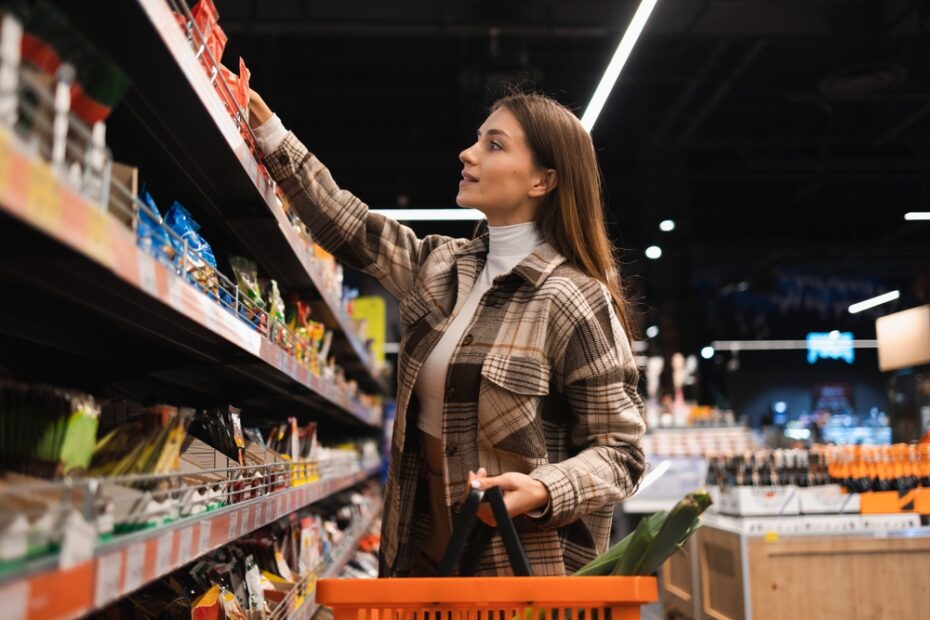This Common Grocery Shopping Mistake Can Inflate Your Bill By 64%

In the world of personal finance, there are more campy proverbs and investment witticisms than anyone could possibly process in a lifetime. Some are steeped in data, while others sound good but could use some serious fact-checking. Today we’re going to test the merits of one such saying you’ve probably heard about grocery shopping.
Should You Eat Before Grocery Shopping?
Here’s one popular money-saving adage that’s seemingly echoed through generations:
Never go to the grocery store on an empty stomach.
The saying makes sense, in theory. A hungry person is likely to grab more food, and rack up a bigger grocery bill. In many cases, they’ll come home with more than they need, leading to another popular saying: My eyes were bigger than my stomach.
Hopefully, this big-eyed, small-stomached person’s leftover food lasts long enough for them to eventually eat it. Otherwise, that’s money down the drain (or garbage chute). In the pantheon of wasteful food spending, letting groceries spoil is somehow worse than using a delivery app.
Digging Into The Grocery Shopping Data
So the logic behind this saying makes sense, but does data actually show that hungry shoppers spend more?
As fans of science-backed frugality tips, we’re proud to report: yes, data does support this theory. In a big way.
According to a report published in 2015 by researchers at the University of Minnesota and University of Southern California, hungry shoppers surveyed by the team spent nearly two-thirds more at the grocery store. And, surprisingly, the outsized spending wasn’t just on food:
The results showed that the shoppers who reported being hungry had spent 64 percent more money and had bought more non-food items than the store’s less hungry customers. This was true even after accounting for factors such as mood and length of time spent in the store.
So there you have it. If you want a smaller grocery bill, hit the store on a full stomach. Entering that store hungry could be bad for your wallet—and you probably won’t come home with more food, anyway.
Want more money-saving shopping tips? Here’s how one couple who saved $2,000 during one Walmart trip says you should hunt for deals.